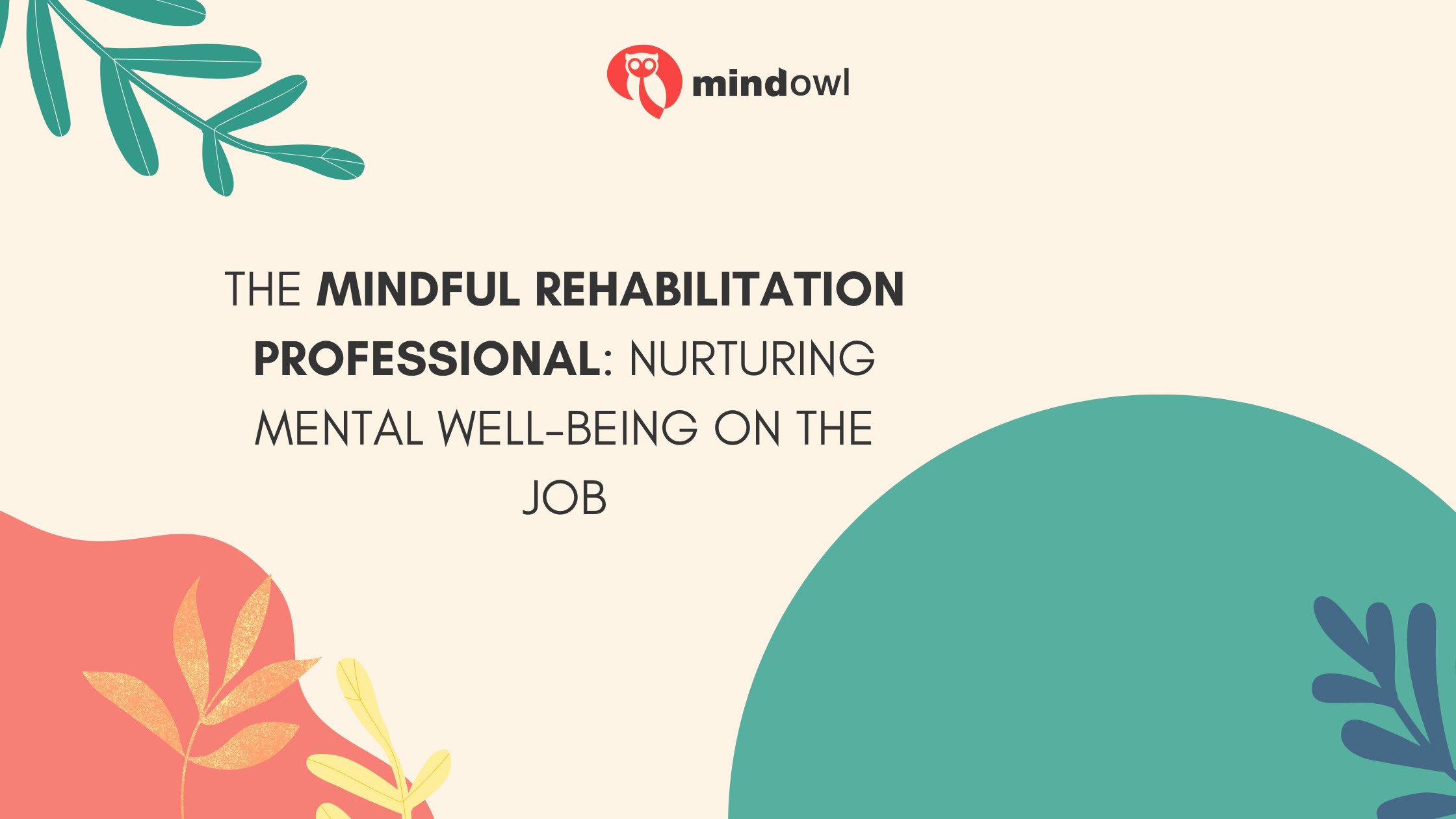
Photo by Resume Genius on Unsplash
Working in the rehabilitation field can be incredibly rewarding, but it also comes with its fair share of challenges and stressors. From managing complex patient cases to navigating the demands of a fast-paced healthcare environment, rehabilitation professionals often find themselves stretched thin, both physically and emotionally. This constant state of stress can lead to burnout, compassion fatigue, and a host of mental health issues, ultimately impacting job performance and overall well-being.
To address these challenges, an increasing number of rehabilitation professionals are turning to mindfulness practices as a means of nurturing their mental well-being on the job. By cultivating a state of present-moment awareness and non-judgmental acceptance, mindfulness can help rehabilitation professionals better manage stress, enhance their emotional resilience, and improve their overall quality of life.
Incorporating Mindfulness into the Workplace
While the benefits of mindfulness are well-documented, integrating these practices into the demanding schedules of rehabilitation professionals can be challenging. However, there are several strategies that can help:
- Formal Mindfulness Training: Many healthcare organizations now offer formal mindfulness training programs, such as Mindfulness-Based Stress Reduction (MBSR) or Mindfulness-Based Cognitive Therapy (MBCT). These structured programs provide a comprehensive introduction to mindfulness practices and can be tailored to the specific needs of rehabilitation professionals.
- Mindfulness Breaks: Even short mindfulness breaks, such as a few minutes of deep breathing or a brief guided meditation, can help rehabilitation professionals reset and recharge throughout the workday. These breaks can be incorporated into existing routines, such as before or after patient sessions, or during scheduled breaks.6
- Mindful Communication: Mindfulness can also be integrated into daily interactions and communication with patients, colleagues, and other healthcare professionals. By practising active listening, being fully present during conversations, and responding with compassion and non-judgment, rehabilitation professionals can foster more meaningful connections and improve the overall quality of care.
- Organizational Support: Ultimately, the successful integration of mindfulness practices in the workplace requires organizational support and a culture that values mental well-being. Healthcare organizations can promote mindfulness by offering training opportunities, providing dedicated spaces for mindfulness practices, and encouraging open discussions about mental health and self-care.
Taking care of your mental health
Set Boundaries from Day One
As soon as you begin looking for Upstream rehabilitation jobs or rehabilitation jobs with any other employer, ensure you set boundaries from the first day. Having boundaries means your employer knows what to expect from you and vice versa.
You can define your boundaries. However, you may like to start by creating set working hours, not taking work home with you, and ensuring your work life doesn’t start cutting into your leisure time.
Make Self-Care Your Priority
Rehabilitation is a demanding job. You must help your clients become the best versions of themselves while being kind, caring, and compassionate. Don’t forget to give yourself the same attention.
Self-care should be your priority. When it is, you can feel mentally healthy and strong to give your clients more of yourself. Ensure you get enough sleep, eat a healthy diet, and practice relaxation techniques. The more you look after yourself, the easier it can be to look after your clients.
Take Breaks
Most rehabilitation professionals work at least eight hours a day and sometimes even longer. That’s a long time to be giving your all to your clients. Don’t forget to take breaks throughout the day so you have plenty of opportunities to recharge. Practice deep breathing exercises, go for walks, stretch, and eat nutritious snacks. A few short breaks where you prioritize yourself may be all it takes to nurture your mental well-being.
Develop Healthy Coping Mechanisms
The stress from our jobs can sometimes be so overwhelming that we resort to unhealthy coping mechanisms like isolation, dissociation, avoidance, and toxic positivity. You may feel like you can cope, but you’re not doing your mental health any favours.
Develop healthy coping mechanisms to become the strongest and most mentally well version of yourself. There are plenty to explore, such as making time to unwind, avoiding drugs and alcohol, taking breaks from social media, and taking care of your mind and body.
Set Realistic Expectations
Just as you would tell your clients to keep their expectations in check and take their rehabilitation one day at a time, you need to set the same realistic expectations for yourself. Never expect more from yourself than you can realistically achieve.
Realize that you can delegate tasks and ask for help when you need it. You can also prioritize your workload when you’re feeling stressed or overwhelmed. When your expectations are realistic, you may be at a reduced risk of burnout and have more time to focus on enjoying your work and creating a positive environment for your clients.
Conclusion
As the healthcare industry continues to evolve, prioritising the mental wellbeing of its workforce will become increasingly important. Investing in mindfulness training and creating a supportive environment for self-care can help healthcare organisations cultivate a more resilient, engaged and effective rehabilitation workforce, ultimately benefiting both professionals and the patients they serve.
MindOwl Founder – My own struggles in life have led me to this path of understanding the human condition. I graduated with a bachelor’s degree in philosophy before completing a master’s degree in psychology at Regent’s University London. I then completed a postgraduate diploma in philosophical counselling before being trained in ACT (Acceptance and commitment therapy).
I’ve spent the last eight years studying the encounter of meditative practices with modern psychology.

